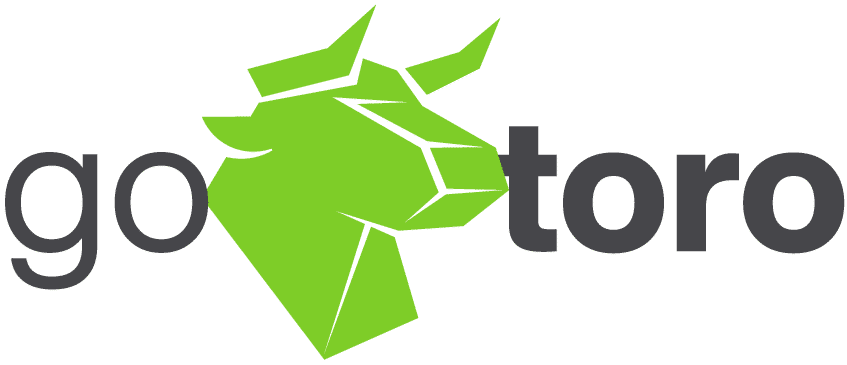Setting the Stage for Success
The recruitment landscape is ever-evolving, and 2024 is no exception. With the rapid changes in the job market and the increasing importance of talent acquisition, setting clear goals for recruiters has never been more crucial. By establishing well-defined recruiter goals, organizations can ensure they stay ahead of the curve and attract the best talent.
The Need for Smart Goals for Recruiters

In the world of recruitment, vague objectives won’t cut it. Smart goals for recruiters are the need of the hour. These goals are:
Specific
Goals must be clear and precise. This involves outlining exactly what needs to be achieved, leaving no room for ambiguity. For recruiters, this could mean setting specific targets for the number of candidates to be sourced, or the types of roles to be filled.
Measurable
Goals should be quantifiable. This enables recruiters to track their progress and measure their success in concrete terms. For example, measuring the number of successful placements or the time taken to fill a position.
Achievable
It’s crucial that goals are realistic and attainable. Setting overly ambitious goals can lead to disappointment and demotivation. Recruiters should consider their resources and limitations when setting goals.
Relevant
Goals need to align with the broader objectives of the organization. This ensures that the recruitment process contributes to the overall success and growth of the company. Recruiters should understand the company’s strategic direction and how their roles fit into it.
Time-bound.
Establishing a clear timeframe for achieving goals is vital. This helps in creating a sense of urgency and can aid in prioritizing tasks. For recruiters, this might involve setting deadlines for filling positions or completing stages of the recruitment process.
By adhering to these criteria, recruiters can ensure they’re on the right path to success with smart goals in mind.
Top Recruiter Goals for Performance in 2024

Enhancing Candidate Experience:
In an age where word-of-mouth and employer branding play a pivotal role, ensuring a positive candidate experience is paramount. The goal could be to achieve a 90% positive feedback rate from interviewed candidates.
Reducing Time-to-Hire:
Time is of the essence. Recruiter goals for performance in 2024 should focus on streamlining processes to reduce the average time-to-hire by 15%.
Diversity and Inclusion:
With the increasing emphasis on diverse workplaces, a key objective should be to fill at least 40% of open roles with candidates from diverse backgrounds.
Upskilling and Continuous Learning:
The recruitment field is dynamic. Aiming to attend at least three industry conferences or workshops in the year can ensure recruiters stay updated.
Implementing Advanced Tech Tools:
Embracing technology is no longer optional. A significant goal should be the integration of AI-driven tools to enhance the recruitment process.
Building Stronger Employer Branding:
As part of the recruiter goals and objectives, aim to increase your organization’s presence and positive perception on professional platforms like LinkedIn. This enhances the overall employer branding strategy.
Data-Driven Recruitment Decisions:
A crucial recruiter goal for performance is to leverage data analytics in the recruitment process. This includes analyzing trends in successful hires to refine job descriptions or using data to identify effective recruitment channels.
Enhancing Employee Referral Programs:
Strengthening referral programs aligns with key recruiter goals and objectives. The target could be to increase referrals and introduce incentives for successful referrals, thereby enhancing the quality of candidate sourcing.
Fostering Candidate Relationship Management (CRM):
Similar to customer relationship management, focus on building long-term relationships with potential candidates. This could involve regular communication, feedback loops, and personalized engagement strategies.
Improving Interview Processes:
Aim to standardize and enhance interview techniques to improve candidate assessment. This might include training for interviewers on unconscious bias or new interviewing techniques like structured interviews.
Expanding Remote and Flexible Work Opportunities:
With the rise of remote work, set a goal to offer more flexible work options. This could attract a broader pool of candidates and align with evolving work preferences.
Enhancing Onboarding and New Hire Experience:
Set objectives to streamline and improve the onboarding process, ensuring new hires integrate smoothly into the organization. This could involve feedback surveys from new employees and regular check-ins during their first few months.
Leveraging Social Media for Recruitment:
Increasing recruitment presence on social media is a vital recruiter goal for performance. This involves creating engaging content and leveraging platforms for job postings and discussions.
Aligning Recruiter Goals and Objectives with Organizational Needs

For the success of any recruitment strategy, it’s essential that recruiter goals and objectives align with the broader vision of the organization. This ensures a cohesive approach where both recruiters and the organization move towards a shared future.
Feedback Mechanism
Regularly gather feedback from hiring managers to ensure recruiter goals remain aligned with departmental needs.
Quarterly Reviews
Instead of annual reviews, have quarterly check-ins to adjust goals as per changing organizational priorities.
Collaboration
Foster a culture of collaboration where recruiters work closely with department heads to understand their talent needs.
Challenges in Achieving Recruiter Goals
While setting goals is essential, recruiters will undoubtedly face challenges:
Changing Job Market Dynamics:
The job market is unpredictable. Recruiters need to stay agile and adapt to changes.
Skill Gaps:
With emerging industries, there’s often a gap between available talent and job requirements.
Budget Constraints:
Often, recruiters have to achieve their goals within tight budgetary constraints.
Competition for Talent
In many sectors, especially those with high demand for specific skills, recruiters face intense competition to attract top talent. This can be challenging when competing against larger companies with more resources or more attractive employer brands.
Technological Advancements
The rapid pace of technological change means recruiters must continually adapt to new recruiting technologies and platforms. Staying current with these changes can be challenging, especially for those in smaller organizations with limited resources.
Retention and Turnover
The challenge doesn’t end with hiring; retaining top talent is equally important. High turnover rates can significantly impact a recruiter’s ability to maintain a stable and effective workforce.
Overcoming Challenges: Best Practices

Continuous Learning:
By staying updated with industry trends, recruiters can anticipate changes and adapt accordingly.
Building a Talent Pipeline
Develop a proactive approach to recruiting by building a talent pipeline. This involves nurturing relationships with potential candidates even before a specific need arises, which can significantly speed up the hiring process when a position does open.
Offering Competitive Compensation and Benefits
Regularly review and adjust compensation and benefits packages to ensure they are competitive within the industry. This can be a key factor in attracting and retaining top talent.
Networking:
Building a strong network can help in tapping into passive talent pools, overcoming the challenge of skill gaps.
Leveraging Technology:
Use AI-driven tools and platforms to streamline processes and stay within budget.
Training and Development Opportunities
Offer continuous learning and development opportunities for the recruitment team. This helps them stay current with the latest recruitment trends and techniques.
Utilizing Analytics
Use data analytics to gain insights into the effectiveness of different recruitment channels and strategies. This can help in making informed decisions and improving overall recruitment processes.
2024 presents a plethora of opportunities and challenges for recruiters. By setting clear goals for recruiters and aligning them with organizational objectives, recruiters can navigate the dynamic job market effectively. As the recruitment landscape continues to evolve, Gotoro’s programmatic job advertising technology offers a cutting-edge solution to help organizations attract and retain top talent. Dive into the future of recruitment with Gotoro. Request a demo today.


